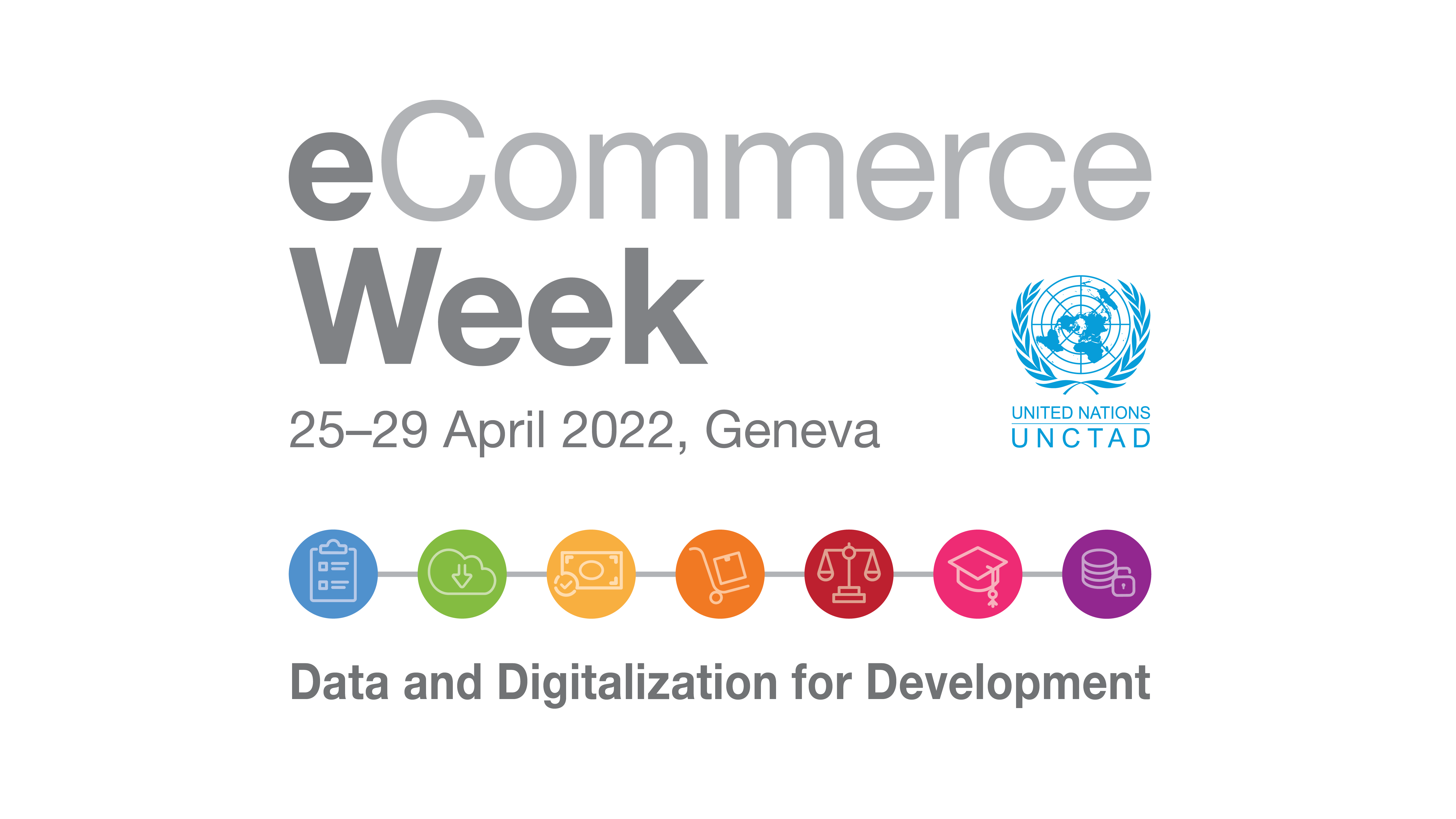Advancing cross-border paperless trade: Nurturing a digital trade environment
28 Apr 2022 10:00h - 11:00h
Event report
This session shed light on the tools for advancing cross-border paperless trade and on readiness assessments for cross-border paperless trade. During the session, panellists from Azerbaijan, the Republic of the Philippines, and Bangladesh shared their national experiences with the readiness assessments, along with the processes, challenges, benefits, and opportunities.
Ms Soo Hyun Kim (Economic Affairs Officer ,the UN Economic and Social Commission for Asia and the Pacific (ESCAP)) discussed the work of ESCAP and the Framework Agreement on Facilitation of Cross-border Paperless Trade in Asia and the Pacific, a UN Treaty to facilitate cross-border paperless trade among willing ESCAP member states. The treaty provides a dedicated intergovernmental framework to develop legal and technical solutions in paperless trade issues. She stated that legal and technical checklists support the implementation of the Framework Agreement. Hyun Kim also provided insights regarding Readiness Assessments, country reports regarding thirteen countries, and five ongoing reports.
Hyun Kim offered further information about a Readiness Assessment Guide for Cross-border Paperless Trade, an online platform developed in collaboration with the UN Commission on International Trade Law (UNCITRAL), and about the Enhanced Integrated Framework (EIF) to facilitate self-assessments, which can be accessed online. She provided further information about other initiatives, for example, a toolkit, regional mapping based on regional assessment studies, and expanding the guide to other languages such as Russian and Spanish.
The legal aspects of the guide were introduced by Mr Luca Castellani (Legal Officer, UNCITRAL Secretariat). Castellani explained that it is a diagnostic tool whose primary purpose is to provide an accurate picture of the status of paperless trade legislation and, he stressed, it is important to ask the right questions to reflect on how legislation is adopted and applied. It is vital to ask the right questions to the right people to identify strong points and opportunities, so that the output of the assessment becomes a to-do list. He stressed that the legal checklist is a starting point, but a much broader framework should accompany countries in implementing reforms. On that note, Mr Hang Tran (Senior Coordinator, Enhanced Integrated Framework (EIF) Executive Secretariat) highlighted the importance of a holistic assessment of the technical and legal ecosystem.
Castellani said that UNCITRAL helps and assists in adopting and implementing the texts. The checklist covers electronic transactions and electronic signature law, including cross-border aspects, as well as laws relating to the establishment and functioning of paperless trade systems. References are made to best international standards and also to broadly shared principles that promote interoperability and mutual legal recognition.
National experiences with Readiness Assessment Report for Cross-Border Paperless Trade
Mr Igbal Babayev (Deputy Chairman, Azerbaijan) shared national results, benefits, and experience of Azerbaijan with the Readiness Assessment Report for Cross-Border Paperless Trade. The report addresses legal and technical aspects and it includes a brief review of data on trade facilitation implementation, along with findings from technical and legal assessments. On the basis of these findings, a team of experts developed a set of recommendations and action plans for both technical and legal areas. He stressed that Azerbaijan has made significant progress in the implementation of trade facilitation measures and remains above the regional average. Babayev identified gaps and challenges; among others, lack of expertise and awareness on the deployment of paperless solutions, budget constraints, and uneven technical readiness across agencies.
Similarly, Mr Allan Geronimo (Deputy Commissioner, The Philippines) shared national perspectives from the Philippines on the Readiness Assessment Report for Cross-Border Paperless Trade. Geronimo mentioned the national process of implementation along with highlights and benefits of conducting the Readiness Assessment. Among the highlights, Geronimo discussed the creation of the Philippine Trade Facilitation Committee (PTFC), strengthening of the National Single Window (NSW) Task Force to support the implementation of the NSW, and improvement of ICT infrastructure and security. Regarding the challenges, he presented technical challenges and issues on data harmonisation encountered by governmental agencies in realising the goal of the Single Window and the lack of report metrics and monitoring of progress with respect to the eGovernment Master Plan.
Mr Hafizur Rahman (Director General, WTO Cell, Ministry of Commerce, Bangladesh) presented national experiences on cross-border paperless trade issues in Bangladesh. He offered insights on the study and action plan focusing on technical and legal aspects and presented its main findings and steps that Bangladesh has taken to advance cross-border paperless trade.
Pacific Aid-for-Trade Strategy 2020-2025
E-commerce and trade facilitation were selected as priorities of the Pacific Aid-for-Trade Strategy 2020-2025, stated Mr Andrea Giacomelli (Aid-for-Trade and Trade Policy Advisor, Pacific Islands Forum Secretariat (PIFS)). E-commerce was selected because it allows businesses to reduce investment costs to start and operate a business, to use virtual channels to connect with business and clients; at the same time e-commerce reduces impediments to growth that are generated by ‘tyranny of distance’ for some services.Trade facilitation, on other hand, was chosen because facilitation already reduces high trading across borders that countries experience in virtue of distance. In addition, it was chosen because trade facilitation in the region is below average. He mentioned the next steps, such as the release of the draft Pacific Regional Trade Facilitation strategy and the input of ESCAP, UNCITRAL, and the WTO, and participation in the validation workshop and role in implementation.
Upcoming Toolkit on Cross-Border Paperless Trade
Insights on the upcoming Toolkit on Cross-Border Paperless Trade were provided by Ms Emmanuelle Ganne (Senior Analyst, WTO). She explained that the toolkit has been developed because it opens many opportunities and challenges associated with a move to paperless trade. Still, it has limited use, despite its numerous benefits. The objective of the Toolkit is to seek adoption at the global level and help developing and least developed countries in implementing cross-border paperless systems.
By Kristina Hojstricova
Related topics
Related event

